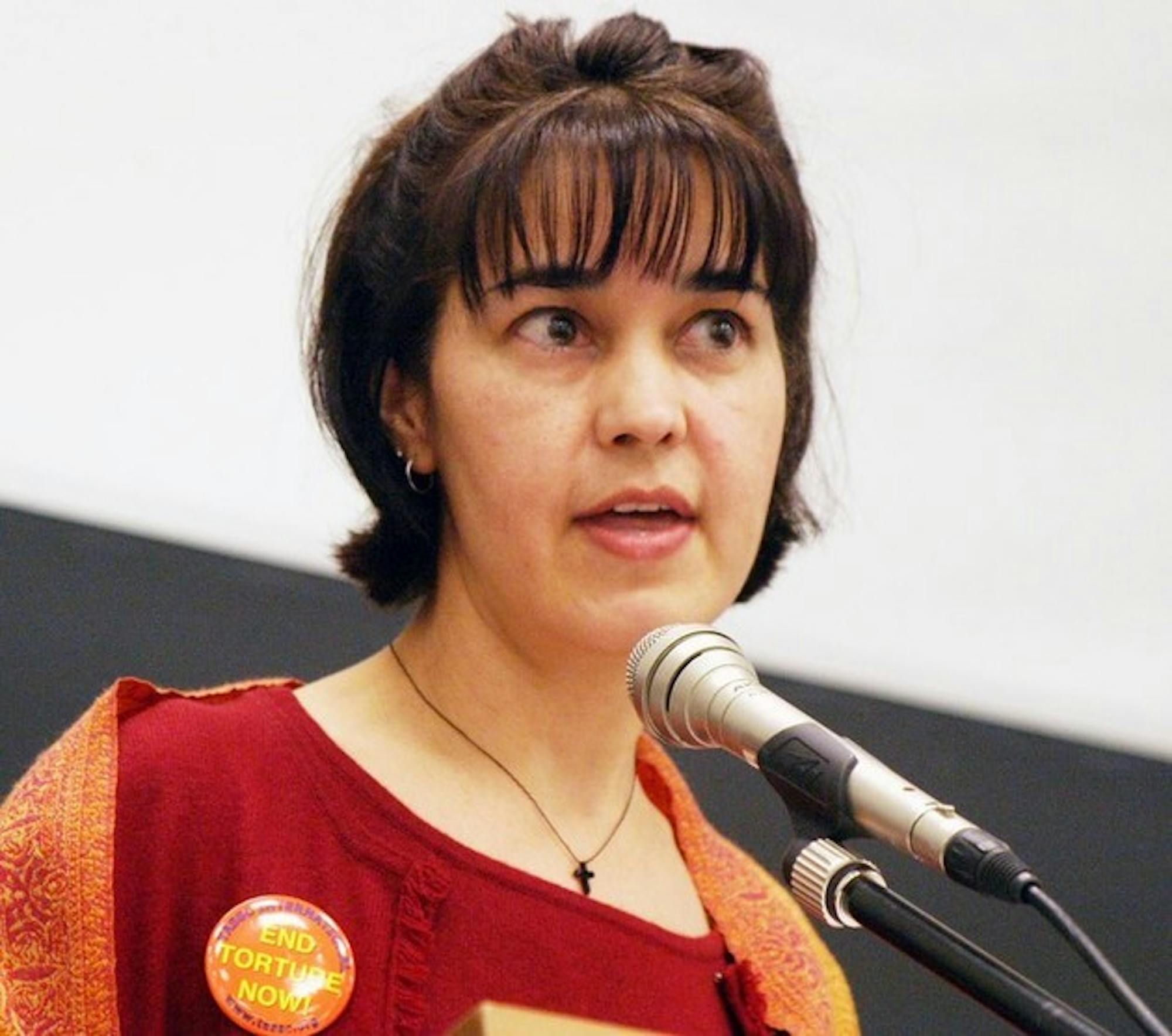Speaking softly and haltingly, Ortiz peered out from beneath dark bangs and said she was abducted, burned, gang-raped and dropped into a pit of human remains in 1989 while doing humanitarian work in Guatemala,
"If I answered in a way they liked, I would be allowed to smoke," she said of a "game" devised by her captors. "If I answered a question in a way that they didn't like, I would be burned with a cigarette. For every answer I gave they burned me."
Ortiz said an American doctor later found 111 cigarette burns on her back. She said this constituted key evidence of her torture. She claims the American and Guatemalan governments spread word that her story was a hoax and that the burns came from "kinky lesbian sex that had gotten out of hand."
Her torture played out amidst a decades-long civil war in Guatemala, which played into the Cold War and saw the American government choosing sides in the region. In 1996, Ortiz led a rally in Washington, D.C., to get documents related to her torture declassified and met briefly with Hillary Clinton. She later wrote a book about her experience and now heads an association of torture survivors in Washington.
Still, she appeared overcome by emotion at one point during her Wednesday afternoon lecture in Silsby Hall, turning her back to the audience for about a minute after saying she was forced to help torture another prisoner.
"One would think after all these years I'd get over it, but I haven't," she said.
She described her day-long capture as "the darkest night of my soul, that moment when everything that gave life meaning dried up and all meaning disappeared from life."
"I also remember the words of the policeman after he had raped me," Ortiz said. "He said to me, 'Your god is dead' and those words are like thread permanently stitched into my soul."
Ortiz also described life after torture as extremely difficult.
"I often say that I died that day only to be forced back into my own life," she said. "Whether they kill us or not, the tortured all die in those clandestine prisons."
She said she opposes torture "anytime, anywhere, for any reason, by anyone at all. To even suggest that there are two sides to this issue is quite appalling."
In that vein, she criticized an October 2005 debate at Dartmouth about torture.
"I understand some time ago you had a debate about the merits of torture and I wonder if this means there will soon be debates against genocide and slavery," Ortiz said.
She and the event organizers urged people to think about those affected by torture.
"By casting the debate in terms of national security and fears of partisanship, we lose sight of the fundamental right to equality for all people," said Claudia Rueda '06, a member of Amnesty International's Dartmouth chapter, which helped sponsor the speech.
"As this flame flickers, so do the lives of thousands who are being tortured," Ortiz said before lighting a candle at the beginning of her talk.
"Clearly it's kind of a sobering thing," said Rene Moya '06, who attended the speech. "Whenever we have a rational debate about things we forget the emotive side."
"I've never heard such explicit descriptions of [torture] and of course not from someone who's experienced it first-hand," said Adele Maass '09, who also attended the speech.
"It is emotionally draining. I feel completely wiped out," Ortiz said after her speech in an interview with The Dartmouth. She returned to the Hanover Inn without attending a small reception at LALACS house.
Fernando Ausin '06 said it was the "most powerful" lecture he has seen at Dartmouth, and he felt inspired to do something.
"This lady came and opened herself up at a very deep and intimate level," he said.




